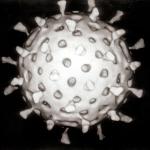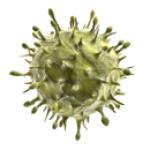Measles, which still kills about 90,000 people around the world every year, isn't the only microbe making a comeback.
rotavirus
Rotavirus infection is a very contagious, resulting in gastroenteritis, fever, vomiting, and diarrhea — sometimes severe enough to cause life-threatening dehydration.
When some of the public hears about vaccines today, they may think of Andrew Wakefield's fraudulent links to autism or Jenny McCarthy’s use of her Hollywood megaphone to polarize the issue as well as encourage the spread of an anti-
Rotavirus, which causes severe gastroenteritis, doesn t get the same degree of attention that others viruses like me
On rare occasions, a new vaccine or drug will work so well
One of the most common childhood illnesses, rotavir
For children in the developed world (a





